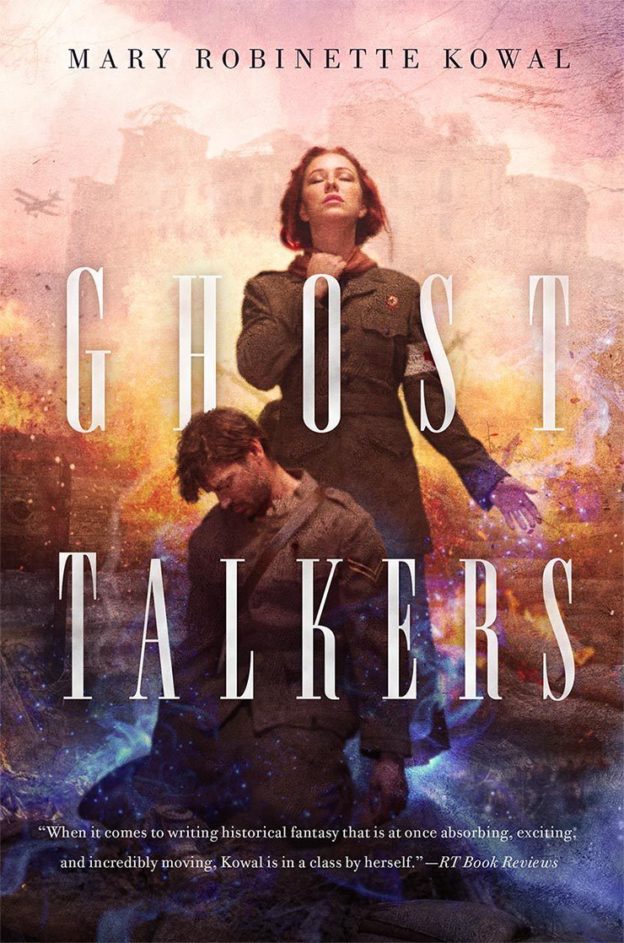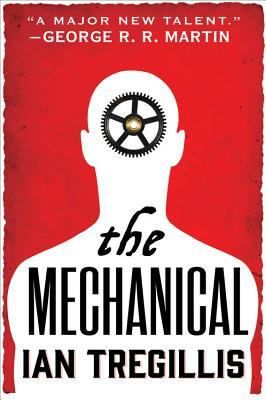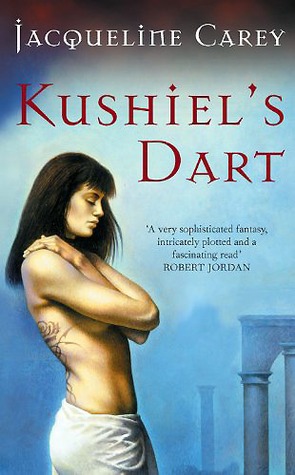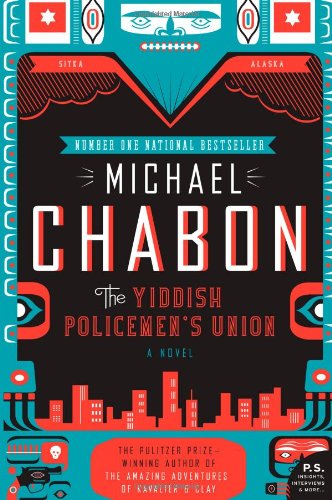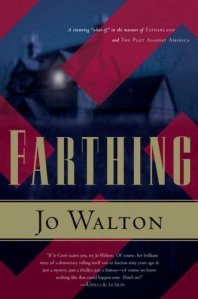WEAPONIZED CARTESIAN DUALISM. That’s all you need to know about how awesome this book is.
It’s World War One, and British soldiers are trained that if they die, they should report to headquarters and tell a medium the last thing they saw, to coordinate with military intelligence. Naturally, a ghost and a medium work together to solve the ghost’s murder because that’s the coolest thing you can do with this magic system.
Ghost Talkers is surprisingly light-hearted given all the death. I will love any book that contains lines like this:
“In that case, you’re forgiven.”
He winked. “Thank you. Hey … that’s the light. Thought they were foo…” And he was gone.
It’s also a great of example of how rip-roaring adventure stories are done. Kowal sets up Checkov’s guns and Checkov’s gunmen all over the beginning of the story. No detail in the first few chapters goes to waste. How does she keep the stakes high, when one of the main characters is already dead? Lingering on Earth isn’t good for ghosts. They shed memories until there’s nothing left but a blob of grief and unfinished business that can’t cross over to the afterlife because it doesn’t remember how. Bingo – the murder mystery has a built-in time limit. Kowal also does a great job with the recurring motif of kissing in all its forms.
Ghosts are hard magic in this universe. Souls follow rules and clever people use those rules to support technology. Ghost Talkers explores the implications of the rules from many angles. For example, ghosts make pretty good air conditioning and excellent spies. Mediums make good therapists because they can see the souls of the dead and the living. Ghost Talkers doesn’t quite answer all the questions it raises, though. Could a ghost kill somebody by sitting on them? If you drop the temperature of somebody’s heart by a couple of degrees, I think that heart wouldn’t work well. And most important, what happens if you astral project while drunk?
Ghost Talkers has some flaws. The best medium is a black woman from Antigua. The other main characters get over their racism as they work with her. I have an easier time believing that dead people can talk. But I see why Kowal did it – to make the heroes heroic in the eyes of a 2016 reader.
The ending is also a bit choppy. I had a few moments where I wondered how that character got all the way over there between scene breaks.
I found the culprit a grayer character than I think Kowal intended. [Merrow isn’t a traitor. He’s an enemy combatant. He grew up persecuted for having the Sight, fought for his country anyway, and suffered the psychological torture of the man he murdered following him around. Now he’ll spend the rest of the war in a military prison under suicide watch as Germany gets crushed. If he’s unlucky enough to get old, he’ll get to see World War Two. He was Germany’s finest, but he failed anyway.]
On balance, I found Ghost Talkers loads of fun, and I especially recommend it to writers who want to watch an expert at work.

